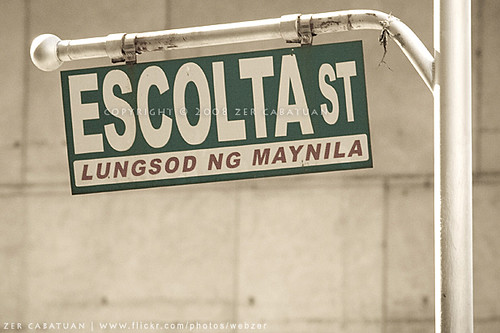business improvement districts

I've advocated for the use of BIDs (Business Improvement Districts) in Metro Manila. Someone just has to write the enabling law.
What's a BID? (Caveat -that links to a Manhattan Institute report on BIDs, and MI is decidedly on right of the political spectrum.)
A BID is an organization of property owners in a commercial district who tax themselves to raise money for neighborhood improvement. Core functions usually include keeping sidewalks and curbs clean, removing graffiti, and patrolling the streets. Once a BID is formed, the assessment is mandatory, collected by the city like any other tax. Unlike any other taxes, however, the city returns the assessment to the BID management for use in the district.
Do they work? Apparently so, according to the Rand Corporation as reported by the LA Times:
In areas as varied as Old Pasadena, Westwood, Hollywood Boulevard and downtown L.A., business and property owners banded together to assess themselves and form umbrella organizations aimed at keeping their areas safe and clean.
The groups, known as business improvement districts, or BIDS, hired private security guards to help patrol their blocks and crews to clean up their sidewalks, as well as lobbying government officials to make other improvements in their area.As violent crime has steadily declined by half in the last decade throughout Los Angeles, the report suggests that areas of the city with active business improvement districts have fared even better -- particularly when it comes to robbery and other street crimes.
There are now more than two dozen such districts in Los Angeles alone, employing that security guard in front of your favorite downtown eatery and the woman sweeping the sidewalk near your stylist's trendy digs.
In the first comprehensive study of L.A.'s business improvement districts, the Rand Corp. said Thursday that the districts are having a significant effect on crime in their neighborhoods and that areas with such districts have significantly less crime than those without them.
The districts "are not just gentrification efforts to displace people or the panacea to crime and making people's lives better," said John MacDonald, the leading researcher on the study and a criminology professor at the University of Pennsylvania. "These districts make a place not such an attractive place for crimes of opportunity such as robbery."
There are social issues that would need to be addressed but BIDs could go a long way because:
BIDs have unleashed an enormous amount of private sector creativity towards the solution of public problems. Philadelphia, for example, dubbed “Filthadelphia” by local wags, had been brought to its knees in the 1980s by massive deficits and intractable municipal unions. Cyclones of trash commanded the sidewalks. Now, its historic downtown is clean and orderly, thanks to the Center City business improvement district, which steam cleans the sidewalks every night and sweeps them continuously during the day. Local business activity has increased markedly. Baltimore’s downtown business leaders have dispelled the area’s reputation for crime with roving patrols of uniformed “ambassadors,” who assist tourists and discourage panhandlers. And New York City’s 34 BIDs can claim considerable responsibility for turning around once squalid neighborhoods—from Times Square to East Williamsburg, Brooklyn—and making them safe and attractive for shoppers and pedestrians.
...BIDs have returned to an earlier set of values regarding public space. They understand that simple things—such as keeping sidewalks clean and safe—matter enormously to the urban quality of life. A city that has lost the will to control allegedly “minor” offenses such as trash and graffiti only invites further disorder.And people are voting with their feet in favor of BID values. Downtown shoppers are rediscovering the pleasures of city strolling; property values in some of the most successful BIDs are rising. (MI)
by webzer

3 comments:
hi udc,
i ve been reading your column a lot. i am a fan, actually.
im glad you mentioned the bid system above, because i have a question. is lapd (and nypd for example) connected under this system?
regards,
fma
hi fma,
BIDs don't have police powers -but the local police often appoint special liaisons to work closely with the BIDs.
They often also hire private security guards to maintain safety and security.
udc
In a sense MACEA (Makati area under control of Ayala Corp) , FGC (fort area) and OCA (ortigas) are as close at it gets for this sort of thing. They tax (through association fees), the have public works, they regulate and plan the area, etc. Of course vested interest of Private Companies reside in these as well so a fine line to walk.
Post a Comment